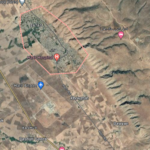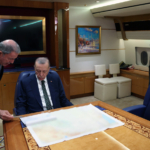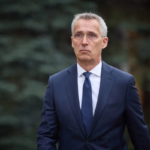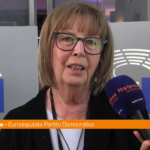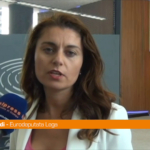Against Isis, against Erdogan’s threats, against Barzani that wants to be the president of KRG forever.
[subscriptionform]
[level-european-affairs]
While on the turkish border, President Erdogan is exploiting international aid to face Isis and, at the same time, try to hit the Kurds of PKK, the president of the KRG (Kurdistan Regional Government), Barzani, is organizing military parades in order to retain his mandate, beyond the two-year extension already granted. KRG is the only form of government able to represent Kurdish people, divided between Iraq, Turkey, Syria and Iran.
The Kurdistan Regional Government was established in Iraq after the collapse of the regime of Saddam Hussein and is now subjected to the same power struggles that caused the instability of the Middle East. During the years Kurdish people were, and still are, discriminated against. Saddam Hussein has made the Kurds the target of his chemical weapons causing real massacres as in Halabja in 1988. The persecution took the traits of the genocide through the “Anfal Campaign”.
In Turkey , as well as in Syria, over the years, the persecution never stopped and Kurdish people did not get more favors. Their conditions has come to international attention since the irregular army of KRG, the Peshmarga, took their weapons to face the advancing of Isis. The pages of history books written now, will describe the heroic resistance of these mixed troops made of men and women, who fought to protect cities like Kobanî. But this is not enough for Turkey that is ready to exploit the Isis justification to attack the Kurdish army.
If the elections on June 7 in Turkey seemed to be a turning point with the entrance in Parliament of HDP; recent events like the connection of the Democratic party of the Kurdish people to PKK after exceeding the threshold of 10% of the preferences set by Erdogan, seem to record a sharp setback.In recent years, the bombings inflicted by the Turkish on the Kurds of northern Iraq never stopped and have caused the reaction of the Kurdish militants. On August 10th, the escalation of violence caused 9 victims, killed in four separate attacks. Near the US Consulate and a police station in Istanbul and near a convoy and a military helicopter in the south-east of the country, Sirkin, in Kurdish territory.
Episodes that are triggering the danger of a real civil war. The DHKP-C claimed the shots against the US consulate that brings the terrorists of the Revolutionary Front for the Liberation of the People, and PKK, the Kurdistan Workers Party of Ocalan, was responsible for the two attacks in the south-east . The reasons that led Erdogan to attack the Kurds, causing their reaction, is to be found in the victory of the Kurdish minority in the last election.
The entry of HDP into Parliament has removed the AKP, the Party for Justice and Development which belongs to Erdogan, that had held absolute majority for 13 years. After the attacks of August 10, Erdogan is supporting the need to go to early elections and get back to the majority denied last June. The attacks claimed by DHKP-C and PKK will cause a loss of votes in the Kurdish party of Hdp at they will be used at his advantage. If it is not possible now to talk about a probable alliance between the guerrillas of the Kurdistan Workers Party (PKK), and the terrorists of the Revolutionary People’s Liberation Front (DHKP-C), however, it is certain that the Kurds are increasingly unwilling to accept the requests of the leader of the PKK, Abdullah Ocalan, in 2006.
From the prison of Imral he asked his fighters to seek dialogue with the Turkish government to reach a cease-fire. If the risk, in Turkey, is to come to a war against the Kurds, the chances that serious internal unrest will happen in the autonomous region of Iraqi Kurdistan are just as real . Days ago, the President of the KRG, Massoud Barzani organized a military parade in Erbil. A clear message designed to get to what he has been asking for a long time, that Is a new confirmation of his role. According to the internal laws to KRG, the presidential term of four years is extendable just for only one renewal. Then, the President decades automatically. Barzani has already achieved a two-year extension that will run out on the next August 19. However, he does not intend to give up his role. The first elections in the KRG took place in 1992. Neither political parties PUK and PKK, represented by Jalal Talabani and Masoud Barzani reached a majority and an agreement. Those conditions caused the dreadful civil war that has killed more than 3,000 civilians. When the civil war ended in 2005, Talabani became the Iraqi President and Barzani the KRG’s President.
The power of the Kurdistan Regional Presidency was stronger than the one of the Parliament and the Kurdistan Regional Government (KRG), to counterbalance the Iraqi presidency. For the KRG, the presidency was a new institution with unlimited powers. The result is that corruption has grown exponentially, national resources have been squandered, private militias and intelligence services are increasingly loyal to their parties as opposed to the country, and there is ever-growing social inequality. The country is bankrupt and most people are struggling to make ends meet, while 10,000 millionaires and 15 billionaires have emerged in a short period of time. Society is polarized between lackeys who live on political parties’ handouts and good honest citizens who have to wait for wages that are three months behind. In fact the system is almost near a dictatorial regime than a Presidential one. It’s true that is a well-established Middle-Eastern-Fact that the presidential system only breeds dictators and corrupt leaders.
In 2013, when Barzani’s term was extended, the political system became an absolute presidency according to legistlation and the chances required by Barzani, to get the president’s powers greater than those of any other president in the region. Just to have an idea, here’s a few of the KR President’s powers: highest executive power in KR, chief of General Staff, power to dissolve Parliament, can announce a State of Emergency [without parliament’s consent], power to appoint KR’s Constitutional Court members and members of the Judges Assembly, power to control KR’s Security Council and KR’s Intelligence services and most importantly of all, the power to approve or reject legislation passed by parliament.
The oppositions tried to make alliance to oppose Barzani but every attempt has been unconclusive. When the war against IS began, only the attack to Shingal and the following capture of a 1,000 women and children made Barzani act. Before that violences Barzani was refusing to engage in the conflict. Nowadays even the war hasn’t motivated Barzani to get his act together with Yazidis and unite the Peshmerga into a strong national army. There can only be two explanations for the multidimensional crisis Barzani has dragged the nation into: either he is too weak to accept responsibility and tackle these matters head on or else he is directly involved in the wrongdoing and exploitation of national resources.
What could happen is Barzani left? The response is not easy at the moment. Now, KRG is governed from the two-party coalition of the Kurdistan Democratic Party and Patriotic Union of Kurdistan (Kurdistan List). At the opposition we found four parties, PUK, Gorran, KIU and KIG that might accept another KDP candidate o tolerate another term for Barzani only if KDP accepts constitutional amendments to establish a full parliamentary system and limit the powers of the president.
But at the moment KDP has not an influential leader who can be accepted by both of the main wings of their party. The PUK seems to have given up on the position since they already have Iraq’s presidency. Gorran also hasn’t declared any interest in the presidency. Just one thing is certain. If the parties do not reach a consensus in the next few months, KR will face a political crisis which could potentially lead to civil unrest.
Monia Savioli
[/level-european-affairs]

